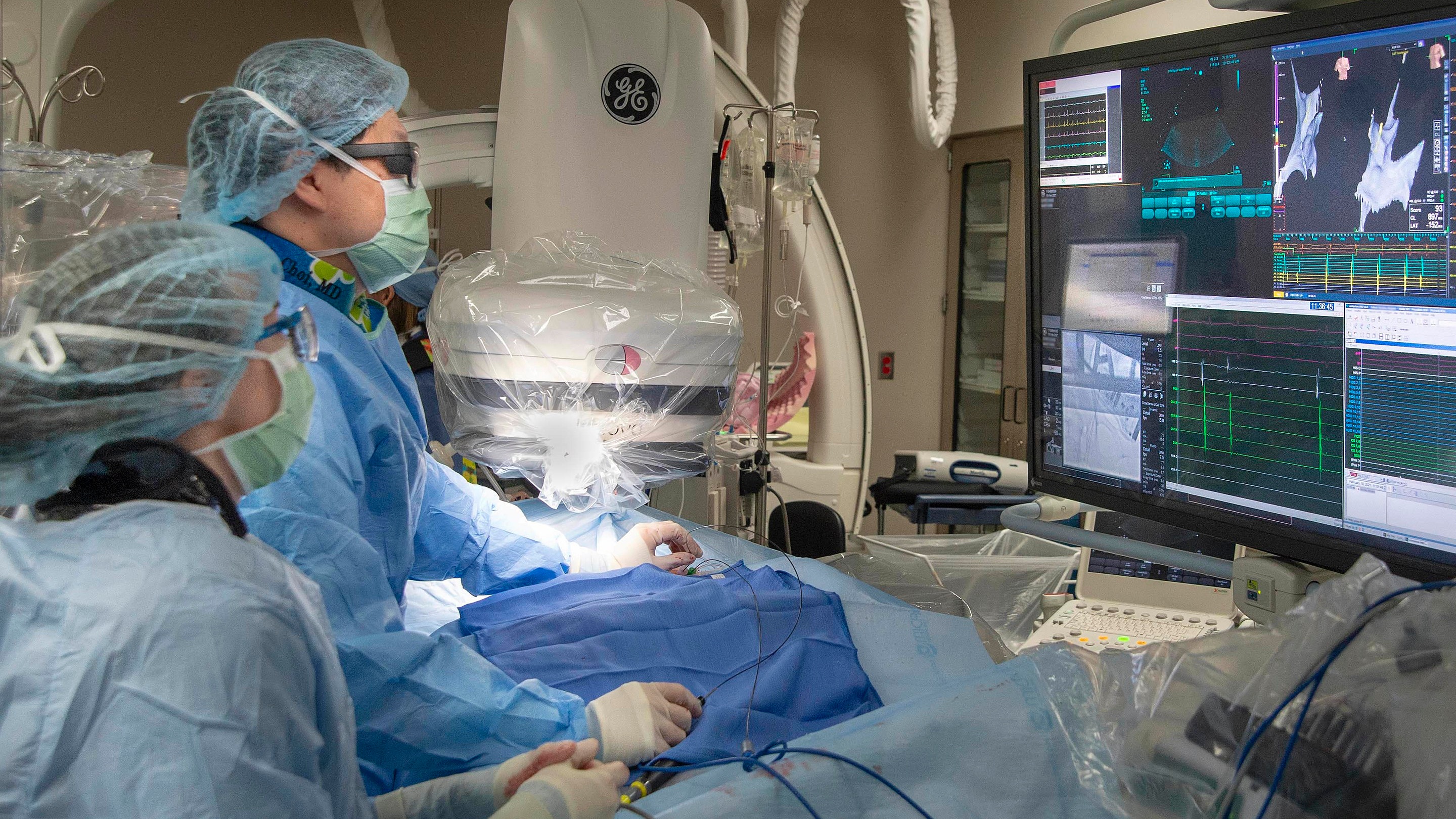
What Is It?
An Electrophysiological Study (EPS) is an invasive test of the hearts electrical system and rhythm.
How Is It Done?
EPS is performed in a specialised procedure room under X-ray guidance. Usually it is performed under sedation and local anaesthetic, but if the situation requires, it can be performed under general anaesthetic. A small incision is made in the groin through which a number of wires are passed through the veins to be positioned in specific areas in the heart. Through these wires the electrical activity of the heart is recorded on a computer. Extra electrical impulses through these wires are delivered to assess their effect on the electrical properties of the heart and on the rhythm.
Why Is It Done?
EPS is done to assess the possibility of abnormal heart rhythms occurring and whether an abnormal rhythm is the cause of a patient’s symptoms. It can also be used to assess the heart’s response to various heart rhythm treatments.
EPS is the best method for assessing the mechanism of an abnormal heart beat, particularly a fast heart beat. It can also be of assistance in clarifying the cause of syncope (Blackout and dizziness).